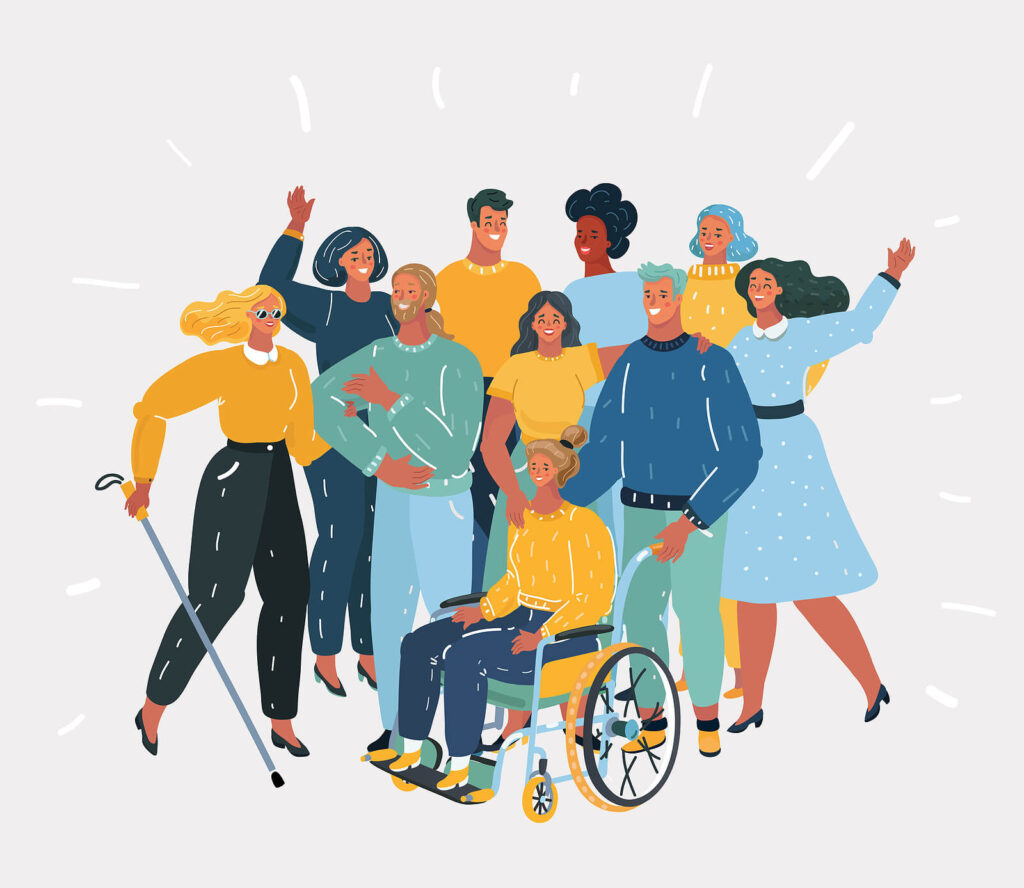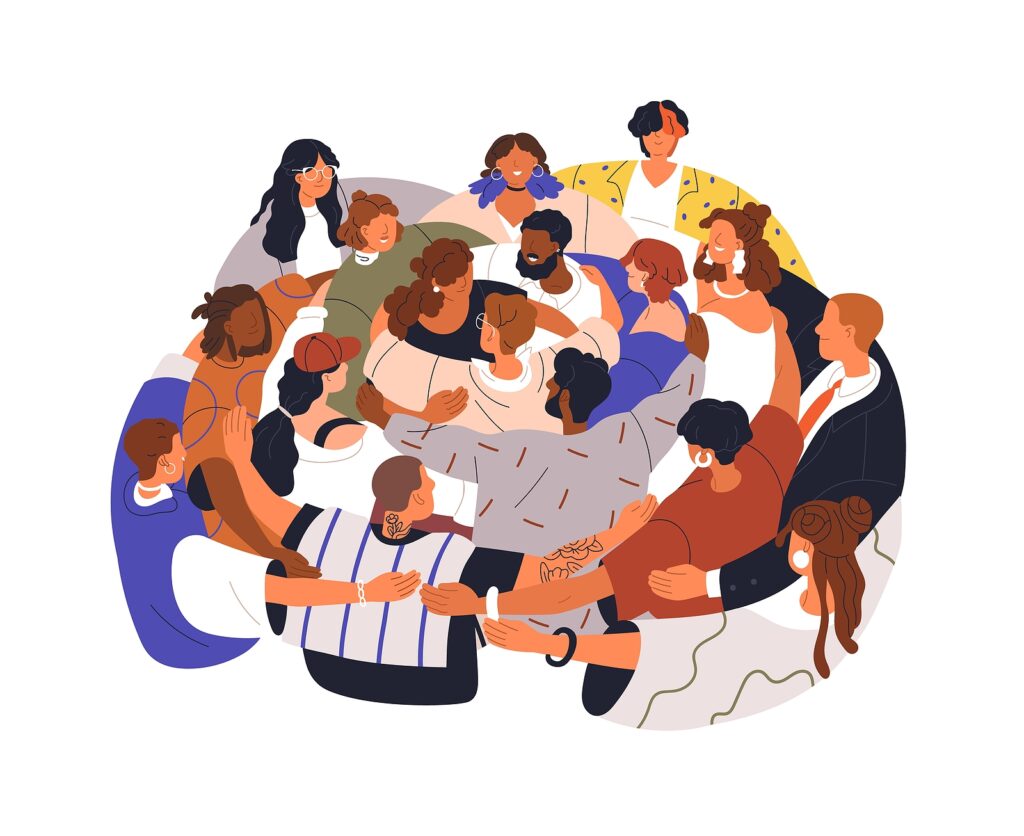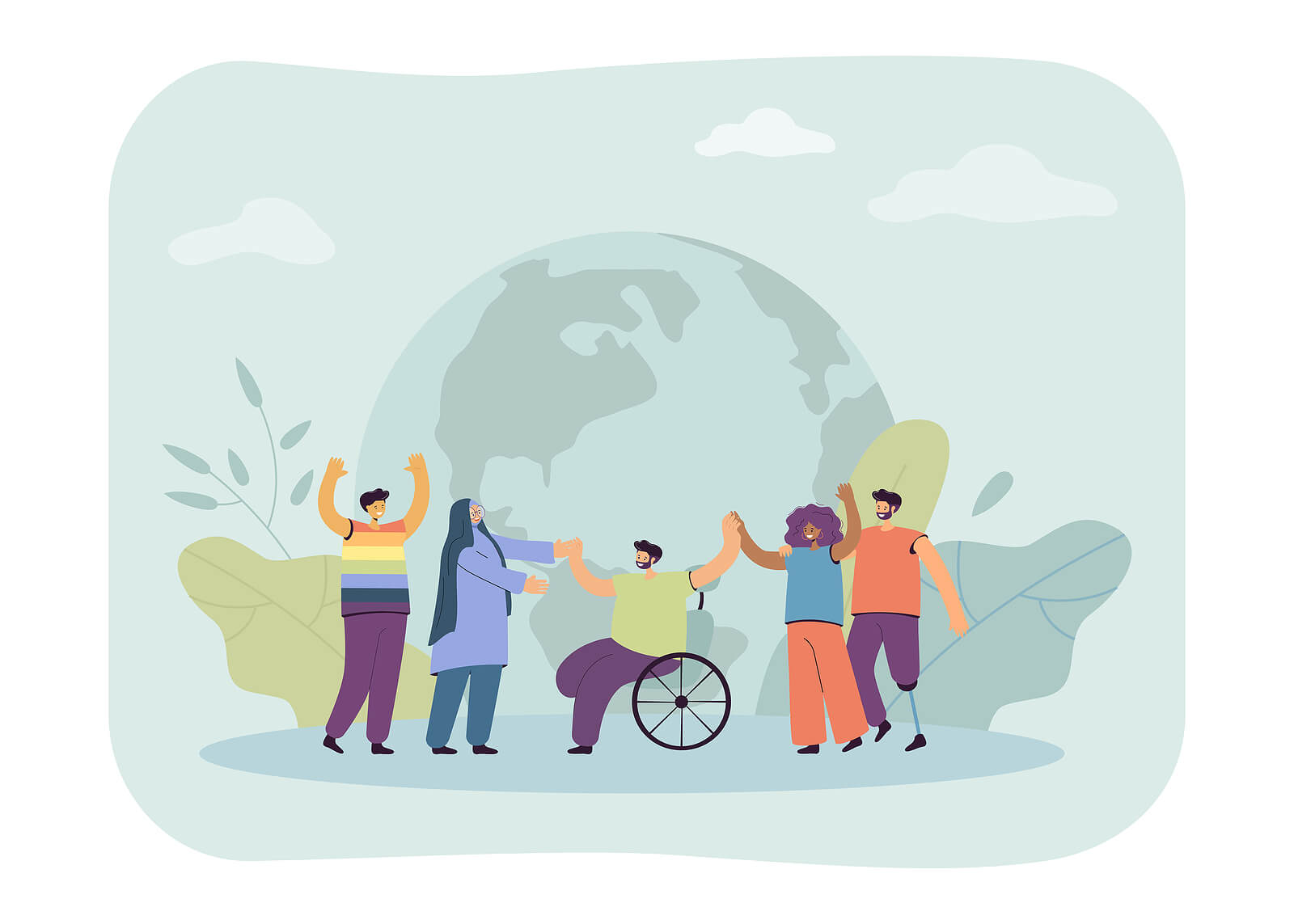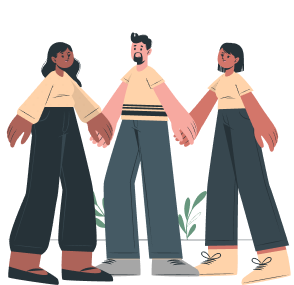Being mindful of how you talk about disabilities is an important part of demonstrating respect for others and combating harmful stigma. Those who are not able-bodied or “neurotypical” live in a world that was not designed with their needs in mind. Unless you have a disability or are close to someone who does, you probably are not aware of all of the privileges you have as an able-bodied person.
For example, living in New York City, many people consider the subway system a useful and convenient mode of transport with often several possible ways of getting to your destination. However, if you use a wheelchair, you’d know that the New York City subway system is not accessible to everyone. Getting around using only subway stations that have an elevator is very limiting (and that’s assuming the elevators are actually working on any given day).

While it is important to maintain an awareness that every individual has different needs and abilities, it is equally, if not more important, to remember that regardless of ability, people are people. Even though a disability may have a significant impact on a person’s life, their disability does not define them. They are living a multifaceted life. Additionally, they deserve to live in a world that meets their needs effectively so that their disability does not need to be the primary focus of their attention.
When talking about disabilities, centering the experience of people is paramount. By using person-centric language, you acknowledge that people are so much more than an ability or disability.
What is person-centric language?
Person-centric language usually means acknowledging someone’s humanity before their disability. For example, referring to someone as “a person with autism”, rather than “autistic” or “an autistic person”, would be considered person-centric language. Although these statements might mean the same thing, they can have very different impacts on the person you are talking to or about.

The pros and cons of person-centric language…
Person-centric language is highly empowering for some people. However, for others with disabilities, this way of addressing them may not be preferable. For example, some people with disabilities find that being addressed as “a person with _______” implies that their disability is a bad thing or something to be ashamed about. Instead, they might prefer being referred to directly as “autistic” for example. This is to demonstrate a sense of pride in their unique abilities.
When in doubt, asking someone how they like to be referred to is the most effective way to maintain a person-centric stance and to show respect for those with disabilities. Whatever their preference, talking about disabilities in a way that acknowledges the person behind the disability is crucial.
Personalized Support for Neurodiverse Individuals at Kind Mind Psychology
At Kind Mind Psychology, we recognize that every individual’s experience with neurodiversity is unique. Our ADHD therapy for neurodiverse individuals goes beyond addressing symptoms; it focuses on the whole person. Our ADHD therapists offer a safe and supportive space to explore personal challenges and strengths. By using person-centric approaches, we ensure that our clients feel seen and respected, empowering them to embrace their identity and navigate life with confidence.

Fostering Respect and Inclusion Through Person-Centric Language
Ready to foster a more inclusive and understanding world? At Kind Mind Psychology, we’re here to support you in embracing person-centric language and promoting respect for all individuals, regardless of ability. We offer compassionate ADHD therapy where a therapist provides a personalized, safe space to explore and grow. Follow the steps below for more information about how we can help you or your loved one thrive.
- Reach out today to schedule a session.
- Explore more ADHD management strategies by reading our blogs.
- Together, we can build a community where every person feels valued and understood.
Services We Offer in New York and North Carolina
In addition to ADHD therapy, we provide a range of supportive services tailored to your unique needs. We offer affirming LGBTQ+ therapy, creating a safe space for individuals to explore and embrace their identities. Our couples therapy and sex therapy help partners strengthen their relationships and foster deeper connections. For those seeking healing, our trauma treatment services offer a compassionate environment to process past experiences. Whether you prefer CBT, DBT, or the convenience of online therapy, we’re here to support your journey toward growth and well-being.

